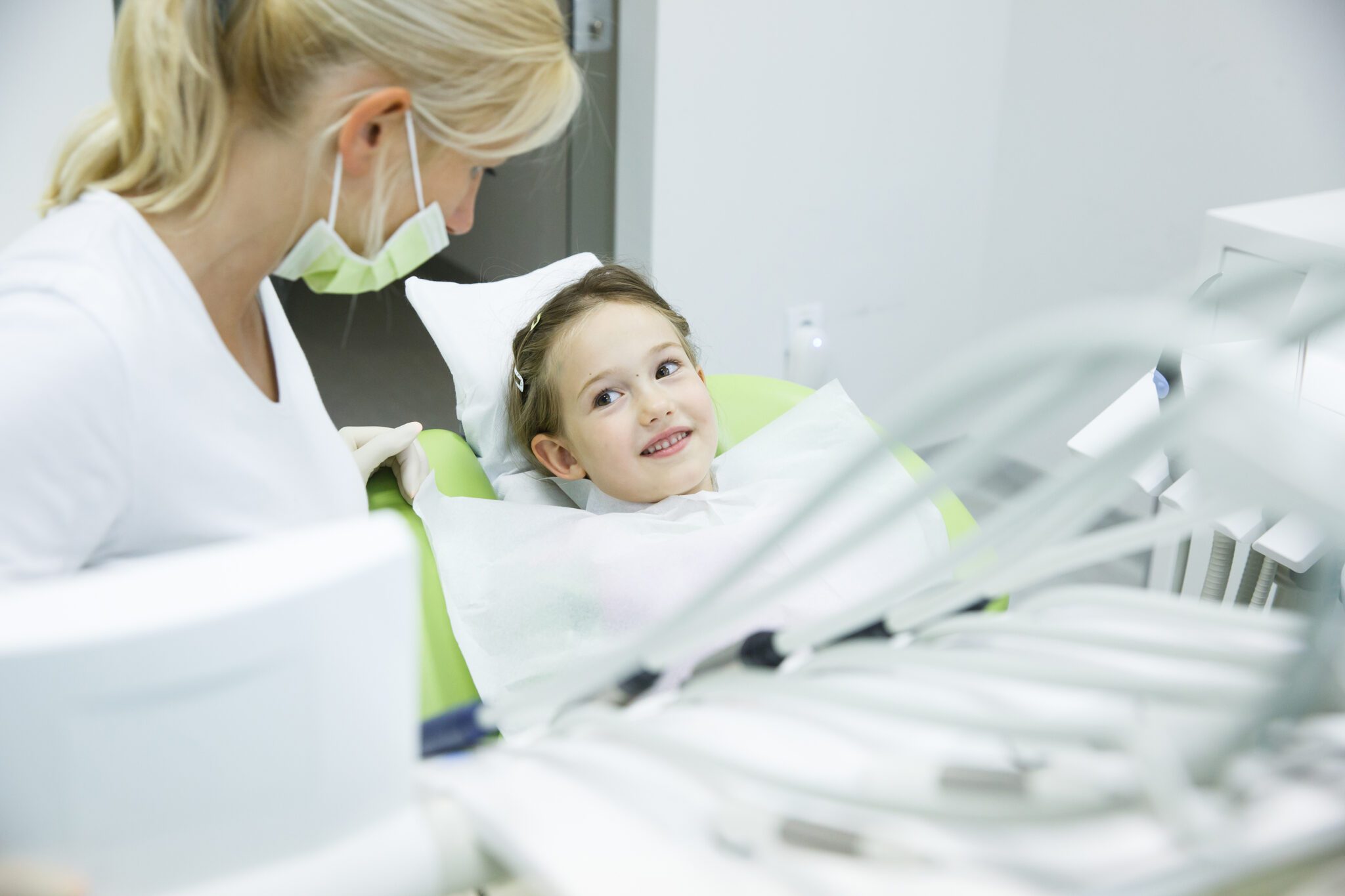In October, dental offices across the nation celebrate dental hygienists’ hard work. Pediatric dental hygienists provide preventative oral care and dental hygiene practices. They examine and clean young patients’ teeth under a dentist’s supervision. Additionally, they educate young patients about their developing mouths in kid-friendly language.
Good dental hygiene must happen in and outside of the dentist’s chair. Here are the answers to five commonly asked questions regarding dental hygiene:
1. How do I remove plaque from my children’s teeth?
Did you know that the mouth is full of bacteria? Helpful bacterias create balance in your mouth’s ecosystem. However, an imbalance of oral bacteria can destroy teeth and supporting tissues. When harmful oral bacteria lingers on the surface of teeth, plaque develops. After bacterial plaque hardens into tartar, it can only be removed by a dental hygienist. If a dental hygienist does not remove the tartar, cavities and gum disease are likely to develop.
A dental hygiene routine with flossing and twice-daily brushing can help prevent plaque and tartar development. Daily brushing keeps the mouth healthy by removing food particles and bacteria. In addition, the brushing motion also stimulates the gums (which helps keep them healthy). Also, choosing toothpaste with fluoride is a simple practice that prevents cavities.
2. Do my kids really need to floss?
Even though some children and adults consider flossing a chore, flossing is an essential habit. Brushing alone cannot remove the plaque and food particles lodged between teeth and near the gumline. We recommend flossing at least once per day.
With any dental floss, be mindful to avoid gum injury:
- Gently insert the floss between two adjacent teeth using a rocking back and forth motion.
- Carefully bring the floss to the gumline (but do not force it under the gums).
- Curve floss around the edge of the tooth in the shape of the letter “C.”
- Slide it up and down the side of each tooth.
- Repeat the process between all teeth.
3. What’s the correct way to teach my children how to brush their teeth?
Brushing teeth in the morning and before bed helps prevent plaque build-up. Here are some tips to help teach your children to brush their teeth effectively:
- Use a timer or favorite tune to time children for two to three minutes.
- Hold the brush at a righchildren’skid’sWhat’st angle (45 degrees) against the gumline.
- Gently brush all inside and outside surfaces of the teeth in short strokes. Scrub the chewing surfaces, making sure to clean the pits and crevices.
- Gently brush the tongue to remove harmful breath-causing bacteria.
4. How does sugar affect my kid’s dental hygiene?
In 2015, the World Health Organization (WHO) recommended that children and adults reduce their sugars to less than 10% of total energy intake. Sugar is a widely-known culprit of tooth decay because harmful oral bacteria thrive on high starch diets consisting of sugars and carbohydrates. When oral bacteria feast on sugar and carbohydrates, they create acids that can lead to bacterial infections. If left untreated, oral bacterial infection can turn into cavities.
An often overlooked component of maintaining good oral hygiene is cutting down on sugary, high-carbohydrate foods. This dietary change can decrease the likelihood of children developing cavities.
5. How often should my children visit the dentist for a dental hygiene visit?
Dental professionals encourage people of all ages to visit every six months. Consistent visits to the dental clinic can help prevent tooth decay, gum disease, other oral health disorders. Our dental hygienists work diligently and patiently to keep your children’s teeth healthy by:
- Removing cavity and gum-disease causing bacteria, plaque, and tartar
- Cleaning and smoothing the surface of the teeth
- Educating children to care for their teeth
Schedule a dental cleaning in Overland Park, KS, by calling (913) 685-9990 or messaging us online today.









